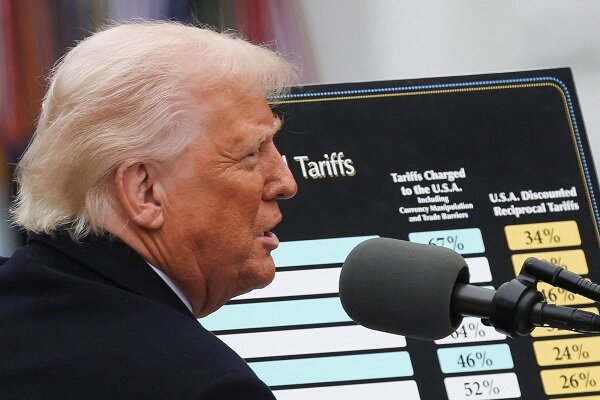Below is a summary of the article written by Mohsen Rezai, a member of Iran’s Convenience Council. He is a member of Trump’s unconventional behaviour and economic policy in the international field.
Many analysts, especially within Iran, believe they are planning only Trump’s rhetoric and his business spirit.
Trump and Elon Musk are also pursuing personal interests, but behind the scenes reality will become more clear in the coming months.
The fact is that Trump’s rushing and unconventional actions, supported by Republicans and American capitalists, are to maintain the power of the dollar in the international economy and compete with China.
The forecast shows that the US economy will be third to fourth in the world within the next decade, due to the decline in the dollar as a major currency in international trade.
A series of political and economic threats from the Trump administration, including infringing on the natural resources and financial assets of the US-sensitive country, as well as support for Republicans in Congress and the US House of Representatives for Trump’s actions, exceeds the nature of his business and personal interests.
Under the Trump administration, a broad tariff war was launched to reduce imports, increase domestic production and exports, strengthen the balance of payments, and reduce pressure on issuing more dollars overseas and financial bonds.
Despite the risks of the reputation of the Senate and Congress, the distance from the economy and free trade, the support for Trump’s actions and the uncertainty of its consequences indicate the high concern of American politicians about the US economic future.
The Trump administration’s unusual measures, including efforts to acquire natural resources in Ukraine, Canada and Greenland, and pressure to inflow capital from Western Asian oil countries, including Saudi Arabia, are rarely seen in US economic history.
The attacks on Yemen, pressure on Lebanon, the deployment of more Syrian military and military equipment, and the attempts to drive away Gaza people along with unconventional economic measures are the same “dollar” as the “next to the bullet” doctrine of the American economy that has been repeated over and over again.
So the question is, “Will the US succeed in these policies?” It is clear that moving the economic and political system away from the history, value and economic system of 200 years ago is not an easy task.
Meanwhile, the interconnectivity and interdependence between the US economy and the global economy has negative feedback effects on the US economy.
MNA/

